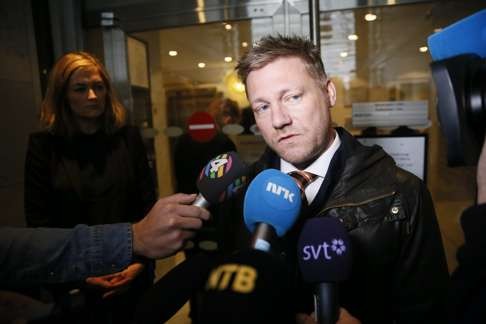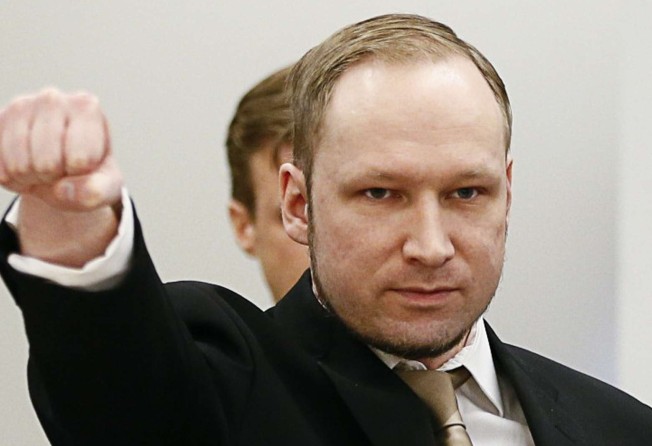
Norwegian court rules that neo-Nazi mass killer Anders Breivik’s human rights were violated by solitary confinement

Norwegian authorities have violated the human rights of mass killer Anders Behring Breivik by holding him in solitary confinement in a three-cell complex where he can play video games, watch TV and exercise, a court in Oslo ruled Wednesday.
In the surprise decision, the Oslo district court said the isolation that Breivik faces in prison for killing 77 people in a bomb-and-gun massacre in 2011 is in breach of the European Convention on Human Rights.
“The prohibition of inhuman and degrading treatment represents a fundamental value in a democratic society,” the court said. “This applies no matter what — also in the treatment of terrorists and killers.”

Breivik, 37, had sued the government, saying his isolation from other prisoners, frequent strip searches and the fact that he was often handcuffed during the early part of his incarceration violated his human rights. During a four-day hearing at Skien prison in southern Norway where he is serving his sentence, he also complained about the quality of the prison food, having to eat with plastic utensils and not being able to communicate with sympathisers.
The government rejected his complaints, saying he was treated humanely despite the severity of his crimes and that he must be separated from other inmates for safety reasons.
“We are surprised,” government attorney Marius Emberland said after the verdict. “We are not in agreement with the court.”
He said his team would study the verdict carefully before deciding whether to appeal.
The ruling cited Breivik’s isolation in two different prisons since his arrest on July 22, 2011, and the fact that he can only talk to his lawyer through a glass wall. It said authorities hadn’t given enough attention to his mental health when determining his conditions in prison.
“After an overall assessment of the facts of the case, the court has reached the conclusion that the imprisonment regime represents an inhuman treatment of Breivik,” the court said.
Breivik’s lawyer, Oystein Storrvik, told Norwegian news agency NTB he would not appeal the ruling. He said prison authorities must now lift Breivik’s isolation.
Breivik is Norway’s most notorious prisoner.
After months of meticulous preparations, he set off a car bomb in 2011 outside the government headquarters in Oslo, killing eight people and wounding dozens. He then drove to Utoya island, where he opened fire on the annual summer camp of the left-wing Labor Party’s youth wing. Sixty-nine people there were killed, most of them teenagers, before Breivik surrendered to police.
International observers were stunned by how far Norwegian authorities went in accommodating him during his 2012 trial. He was even allowed to use the stand as a pulpit to profess his extremist views.
He was convicted of terrorism and mass murder and sentenced to 21 years in prison, Norway’s maximum sentence. However, the sentence can be extended for as long as he’s considered a menace to society.
At the time of the attacks, Breivik claimed to be the commander of a secret Christian military order plotting an anti-Muslim revolution in Europe. Investigators found no trace of the group.
He now describes himself as a traditional neo-Nazi who prays to the Viking god Odin, saying his earlier crusader image was just for show. He made a Nazi salute to journalists at the start of his human rights case in March.
Professor Kjetil Larsen of the Norwegian Institute of Human Rights said he expected the verdict to be met with “considerable surprise” both internationally and in Norway. Larsen said he thought it was clear from the start that Breivik’s treatment doesn’t violate his human rights.
“I thought that what came out during the trial made that even clearer,” he said.
Larsen said the government will probably appeal the ruling and that prison authorities won’t be obliged to change Breivik’s imprisonment conditions until there’s a final judgment.